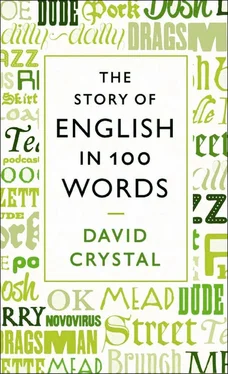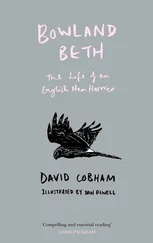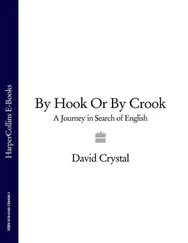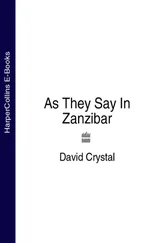 59. Edit — a back-formation (18th century)
59. Edit — a back-formation (18th century)
‘Which came first?’ is the daily question when exploring the history of words. Normally, we find that words build up in size over time. We find nation in the 1300s, then national in the 1500s, then nation-alise in the 1700s, then nationalisation in the 1800s, along with denationalisation — and doubtless anti-denationalisation is out there somewhere now. That’s the expected pattern. So edit comes as a bit of a surprise, because there the pattern is the other way round.
We start with edition in the 1500s. A century later we find editor , and a century after that editorship . So far, so normal. Then, in the 1790s, along comes edit . The verb was formed by dropping the ending from editor . Linguists call such things back-formations .
Back-formations have been in the language a long time, but they seem to have increased in popularity over the past 200 years. Along with edit in the 18th century came swindle (from swindler ) and gamble (from gambler ). In the 19th we find such formations as shoplift (from shoplifter ) and sculpt (from sculptor ). In the 20th there was automate (from automation ), babysit (from babysitter ), televise (from television ) and dozens more. It can take quite a while for a back-formation to surface. Burglar is there in the 13th century, but we don’t find burgle until the 1870s. Housekeeper dates from the 1440s; to housekeep only appears 400 years later. On the other hand, when staycation arrived in the 2000s, for a ‘stay-at-home vacation’, one concerned travel firm immediately introduced the slogan: Why staycate when you can vacate?
Not all back-formations are immediately accepted. Among the usages which have attracted criticism are helicopt, caretake and therap . Would you like to be helicopted ? Helicoptered seems to be the preferred form. But the naturalness of back-formation is clear from the way people are very ready to make jocular coinages. I’ve often heard people say that someone was being couth (as opposed to uncouth ). Shevelled and sipid ? Not dishevelled or inspid . And the opposite of disgruntled ? Gruntled , of course (a P. G. Wodehouse innovation).
Slightly off the topic, but worth reporting as an end-note. I don’t know if I’d come across editress before, as the feminine form of editor , but I found it in my trawl through the history of edit . It seems to have been quite popular in the 19th century. So was editrix . Neither one has died out. There are several web sites with editress or editrix in the title. I suspect that most of them are tongue-in-cheek.
 60. Species — classifying things (18th century)
60. Species — classifying things (18th century)
How many words are there in the English language? It’s one of those impossible questions to answer, because it partly depends on what you count as a word. Is flower pot one word or two? And washing machine ? Do all abbreviations count as words? How many words are there in Meet me at 4 pm outside your HQ for a G&T ? And what are we to do with the thousands of Latin and Greek words used in classifying the natural world?
Some 2 million species of living things have been described using the naming system devised by Carolus Linnaeus in the 18th century. This was a system where plants and animals are first identified as belonging to a particular species ; species are then grouped into types called genera (singular form, genus ); and genera are grouped into families . Most of the time, a genus and a species are enough to identify what someone is talking about.
For example, the various species of tulip belong to the genus Tulipa , which along with other genera (such as daffodils and lilies) makes up the family Liliaceae . Different species are then distinguished as Tulipa sylvestris (‘woodland tulip’ ) , Tulipa clusiana (‘lady tulip’) and so on. Similarly, the various species of cat belong to the genus Felis , which along with other genera (such as tigers and cheetahs) makes up the family Felidae . Different species are distinguished as Felis catus (‘domestic cat’), Felis sylvestris (‘wild cat’) and so on, then further distinguished as breeds, such as Felis catus siamensis (‘Siamese cat’) and Felis catus anura (‘Manx cat’).
These are all technical terms, intended to replace the vagueness in everyday names. The name bluebell refers to different plants in England and Scotland, and of course has a totally different name when translated into other languages. But the Latin term is always used in the same way, so gardeners in every country can understand each other more easily, and ambiguity is avoided. Most people don’t use the full descriptions, though anyone wanting to be taken seriously as a botanist would have to know some of them.
Do all these classical names count as English? We can’t ignore them. In a discussion at a flower show, we will often hear such sentences as ‘I’ve got a large clump of Tulipa tarda in my garden, and it looks terrific’, and several of the technical names have actually become everyday usage, such as rhododendron and fuchsia . Similarly, any walk around a zoo or a natural history museum will introduce us to the technical names of animals, some of which, such as Homo sapiens (‘wise human’) and Tyrannosaurus rex (‘tyrant lizard king’), have become widely known.
If there are 2 million known species, then there are 2 million names awaiting inclusion in a super-dictionary. And we ain’t seen nothin’ yet, for biologists say that many more millions of species have yet to be discovered.
 61. Ain’t — right and wrong (18th century)
61. Ain’t — right and wrong (18th century)
For a word that has regularly attracted a bad press during the 20th century, ain’t is remarkably audible in speech and visible in writing. It’s widely condemned as bad English, and yet all kinds of people use it. It isn’t just something we hear in regional dialect speech. Speakers of standard English use it too, in such expressions as If it ain’t broke don’t fix it, Ain’t it the truth, Ready it ain’t and Things ain’t what they used to be . They’re using the non-standard form to make their speech sound more robust, unpretentious and down-to-earth.
We’ll also find it in written English. Did you notice an example at the end of the previous chapter? It’s by no means the first time that the expression has been used in print. Indeed, in 2002 it was part of a book title: You Ain’t Seen Nothing Yet: The Future of Media and the Global Expert System . And several other titles have included an ain’t , such as Ain’t Misbehavin’: A Good Behaviour Guide for Family Dogs and It Ain’t Necessarily So: Investigating the Truth of the Biblical Past. The nonstandard form, unusual in print, grabs the attention.
In these last two cases there’s an allusion to a well-known song. We seem to have stored away in our memory such phrases as ain’t misbehavin’ (the name of a Louis Armstrong hit from the 1929 musical comedy Hot Chocolates ) and can bring them out again as required, confident that other people will recognise the allusions. Nor is it only song that uses the word. It Ain’t Half Hot, Mum has entered British consciousness as a result of a popular TV programme. It ain’t over till the fat lady sings has prompted a sports commentary cliché.
Читать дальше

 59. Edit — a back-formation (18th century)
59. Edit — a back-formation (18th century) 60. Species — classifying things (18th century)
60. Species — classifying things (18th century) 61. Ain’t — right and wrong (18th century)
61. Ain’t — right and wrong (18th century)










